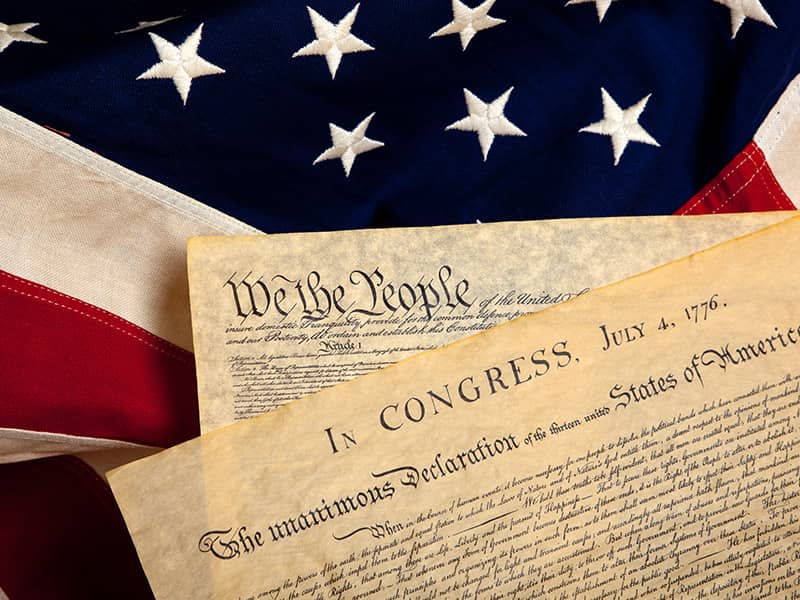Yet he is also a president who speaks often--and is expected to again this week when he is renominated in New York--of compassion. He doesn't confine the theme to domestic policy, where its applications have stirred controversy, but has also talked about compassion in the context of foreign policy, even of war.
Now, it may seem odd to contemplate a president who has toppled regimes in Afghanistan and Iraq as a compassionate war president. But Bush thinks of himself that way. And for him, compassion comes directly from his faith--specifically from the second great commandment, to love your neighbor.
The centrality of compassion, or "neighbor-love," to this presidency was indicated in Bush's inaugural address when the president referred to the parable of the Good Samaritan, which Jesus related in response to a question based on the second great commandment. That question was, "Who is my neighbor?" As he took office, Bush pledged the nation to a goal that "when we see that wounded traveler on the road to Jericho, we will not pass to the other side."
At the time Bush seemed to be commending neighbor--love within these United States. His presidency, after all, was expected to be concerned mostly with domestic matters. And in the first months of his term, Bush introduced the policy most commonly identified with compassion--his faith-based initiative. Aiming to enlist religious charities in the fight against poverty, Bush described it as "good public policy based on the willingness of our citizens to love a neighbor just like you'd like to be loved yourself." Bush also invoked compassion in contending for another big domestic policy initiative of his early presidency--his No Child Left Behind legislation. These and other "compassionate" policies have been vigorously debated--Democrats charge the president with "underfunding" the No Child Left Behind bill--and doubtless will be until Election Day.
But, as we all know, the world changed on September 11, and so did the Bush presidency. No one can say to what extent compassion might have figured in Bush's foreign policy had September 11 not occurred. But, three years later, it's apparent that compassion has indeed played a large role in not only the president's response to terror but his work overseas generally.
In his 2003 State of the Union Address, Bush said, in a summation of his foreign policy, "The qualities of courage and compassion that we strive for in America also determine our conduct abroad. ...Our founders dedicated this country to the cause of human dignity, the rights of every person, and the possibilities of every life. This conviction leads us into the world to help the afflicted and defend the peace, and confound the designs of evil men."
For Bush, of course, "evil men" include terrorists and those who support them. In fighting the war on terrorism, Bush has invoked not only justice as a reason for his actions--but also compassion. For example, Bush explained the military effort in Afghanistan to a Connecticut audience by saying that the United States liberated an innocent people oppressed by a barbaric regime. "We're compassionate," he said. "We care deeply about our fellow citizens in this world." Though Bush has not cited Augustine, he would seem to be tracking what that just-war theorist argued, namely that love does not foreclose "a war of mercy." Indeed, for Bush it appears to demand war if it's necessary to protect an innocent third party from oppression.
As Bush has explained his rationale for the war in Iraq and his plans for that nation's rebirth, he's made it clear that compassion doesn't stop with liberation but includes efforts to establish institutions in which "the rights of every person"--including religious liberty, "the first freedom of the human soul"--can be protected. Compassion envisions democracy.
Asked last summer by Christianity Today to describe Bush's foreign policy, Commerce Secretary Donald Evans, the president's long-time friend, said, "It's love your neighbor like yourself. The neighbor happens to be everyone on the planet." Evans has fairly captured a policy that critics both right and left have found too idealistic for their tastes. And potentially too costly, given its apparently limitless application.
Strikingly, while Bush's conduct of the war on terrorism, and of the war in Iraq in particular, is the big issue in the presidential election, the Biblical principle motivating our commander-in-chief has not been. Indeed, in his acceptance speech, John Kerry embraced neighbor-love when he said that "the measure of our character is our willingness to give of ourselves for others and for our country." George W. Bush could not agree more.

